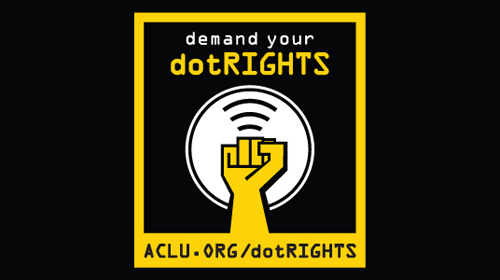
Just this week, the prohibiting employers from requiring or requesting employees or job applicants to disclose their user names or passwords or any other means of accessing personal internet sites as a condition of employment.
It all started last year when came to the ACLU of Maryland still angry about the invasion of his privacy that he had to endure to get a job. He had been forced to give his Facebook password to his past employer, the Maryland Department of Corrections, when he reapplied for his job after a leave of absence to deal with a the loss of a family member. While being interviewed, he was forced to turn over the password to his personal social media account and sat mortified as his interviewer logged onto his account and told him that he was looking through all his personal messages, wall postings, and family photos. ACLU-MD took the case up and tried to resolve the issue with the Department but was not satisfied with the response. Fortunately for Maryland job seekers and employees, they will no longer have to make the difficult decision to choose between their privacy and a job. .
Requiring job applicants or employees to give up passwords or let employers onto their personal sites in any other way not only violates the privacy of that individual but of their friends and family members that they are communicating with on these sites. It has been compared to giving someone the keys to your home to go have a look around or tapping your phone line to eavesdrop on your personal communications.
This practice can lead to employers obtaining information they are prohibited from asking employees about, such as marital status, religion, or sexual orientation. Learning this information could potentially lead to discrimination in hiring.
Sharing your user name and password also violates the terms of agreement of one of the largest social media sites – Facebook. In fact, during the course of fighting for the Maryland legislation, Facebook’s Chief Privacy Officer, Erin Egan, published the following :
Facebook takes your privacy seriously. We’ll take action to protect the privacy and security of our users, whether by engaging policymakers or, where appropriate, by initiating legal action, including by shutting down applications that abuse their privileges.
While we will continue to do our part, it is important that everyone on Facebook understands they have a right to keep their password to themselves, and we will do our best to protect that right.
As more instances emerge of employers throughout the country engaging in these types of privacy violating practices, we are excited to see more states propose this type of privacy protective law. In fact, bills have been introduced in California, , , Minnesota, , and , and a legislator in is planning to introduce a similar piece of legislation. (If you’re in Illinois, you can urge your legislators to pass your state’s bills .)
And as well. We hope that Maryland’s model can help to . You can help too. Go to to pass a bill protecting private social networking information.
The next frontier in social media privacy protection in Maryland? Putting in place these same type of protections for students so that schools cannot snoop into students’ private social media accounts as many college athletic departments have already started doing. The fight continues to bring our privacy laws up to speed with today’s rapidly changing digital technology. Your online privacy should be up to you, not the state you live in.
You can learn more about social media privacy both in schools and in the workplace on ACLU’s website. And follow the ACLU’s “Demand your ” campaign on and to stay informed on digital privacy issues.
Learn more about dotRights: Sign up for breaking news alerts, , and .

